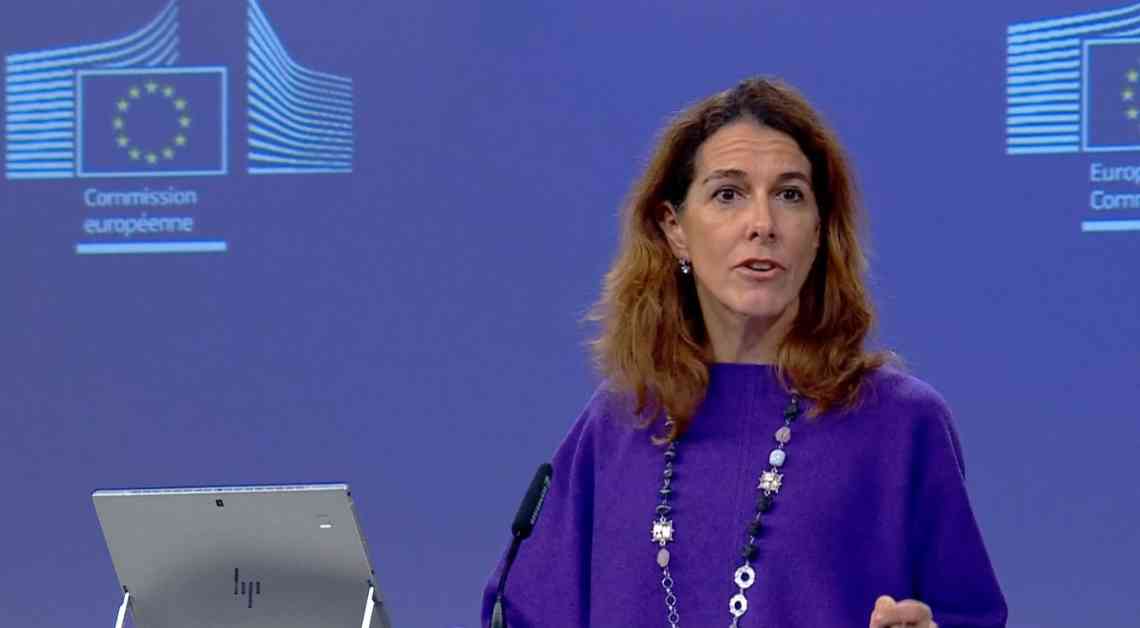The recent report from the Financial Times suggesting a link between the resumption of Russian gas transit talks and potential peace negotiations in Ukraine has stirred up controversy and speculation. However, the European Commission has swiftly dismissed these claims, asserting that there is no current connection between the two issues. This statement was made by European Commission Chief Spokesperson Paula Pinho during a press briefing on January 30th.
The backdrop for these discussions is the ongoing Russia-Ukraine war, with US President Donald Trump offering to mediate peace talks between the two nations. Russia’s hydrocarbon exports have long been a crucial source of revenue for the country, with gas supplies to the EU accounting for a significant portion of this revenue. Germany, in particular, has been a major buyer of Russian gas, with the EU as a whole relying on Russian energy imports to meet its needs. However, in light of recent geopolitical tensions, the EU has taken steps to reduce its dependence on Russian energy, opting to cut most Russian energy imports while still maintaining some purchases of LNG and utilizing the TurkStream pipeline.
The Financial Times report suggested that EU officials were considering the possibility of resuming Russian gas purchases as part of a broader peace agreement between Ukraine and Russia. This proposal was reportedly supported by Hungarian and German officials, who argued that such a move could incentivize both parties to adhere to a peace deal while providing stability to the energy market. However, the European Commission has made it clear that they are not currently linking gas transit talks to peace negotiations and that any future discussions on the matter would involve Ukraine directly.
Commission’s Stance on Russian Gas Resumption
In her statements addressing the Financial Times report, Paula Pinho emphasized that the European Commission has set a clear line on the issue and is not currently considering any connections between gas transit talks and peace negotiations. She reiterated the EU’s commitment to reducing Russian energy imports, citing the REPowerEU plan as a strategic initiative to gradually phase out Russian gas purchases. This firm stance underscores the EU’s determination to assert its energy independence and limit its reliance on Russian resources in the face of geopolitical challenges.
Implications for Energy Markets and Geopolitics
The debate surrounding the potential resumption of Russian gas purchases highlights the complex interplay between energy markets, geopolitics, and peace negotiations. The proposal to link gas transit talks to peace discussions raises questions about the effectiveness of economic incentives in promoting diplomatic solutions to conflicts. By exploring the implications of such a strategy, policymakers can gain insights into how energy resources can be leveraged as tools for peace and stability in regions of conflict. As the EU navigates these challenging dynamics, it is crucial to consider the broader impacts of energy decisions on international relations and security.
As the European Commission addresses the fallout from the Financial Times report, the future of Russian gas transit talks and their potential connection to peace negotiations remains uncertain. While the EU remains committed to reducing its dependence on Russian energy, the complexities of balancing energy security, diplomatic relations, and geopolitical interests continue to shape the region’s energy landscape. By staying abreast of these developments and engaging with stakeholders to find innovative solutions, the EU can navigate the challenges of energy transition in a rapidly changing global environment.

















